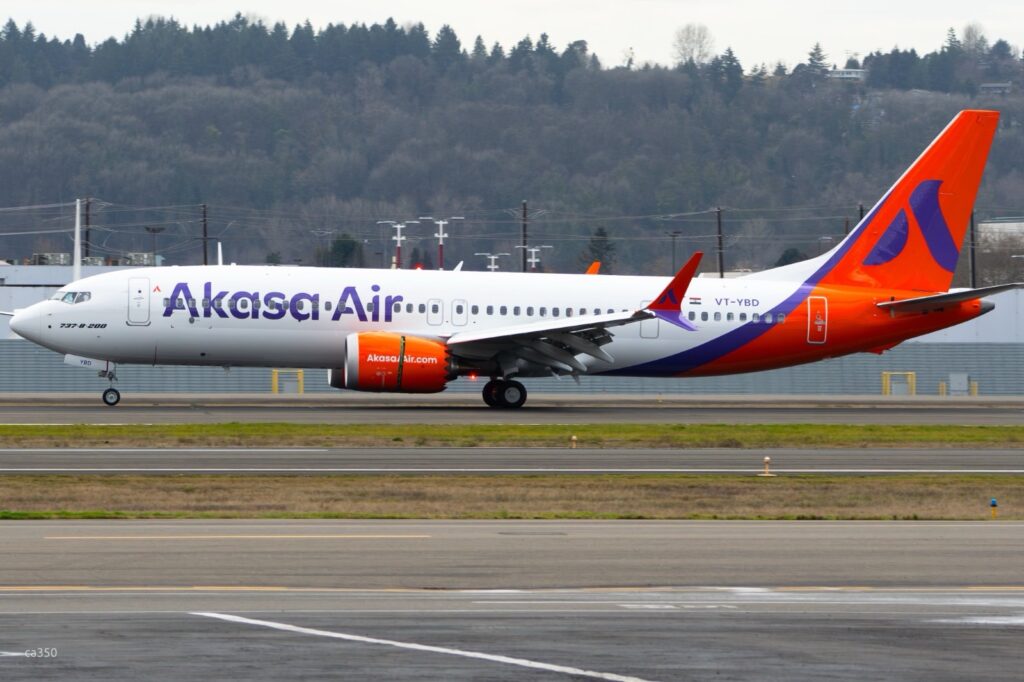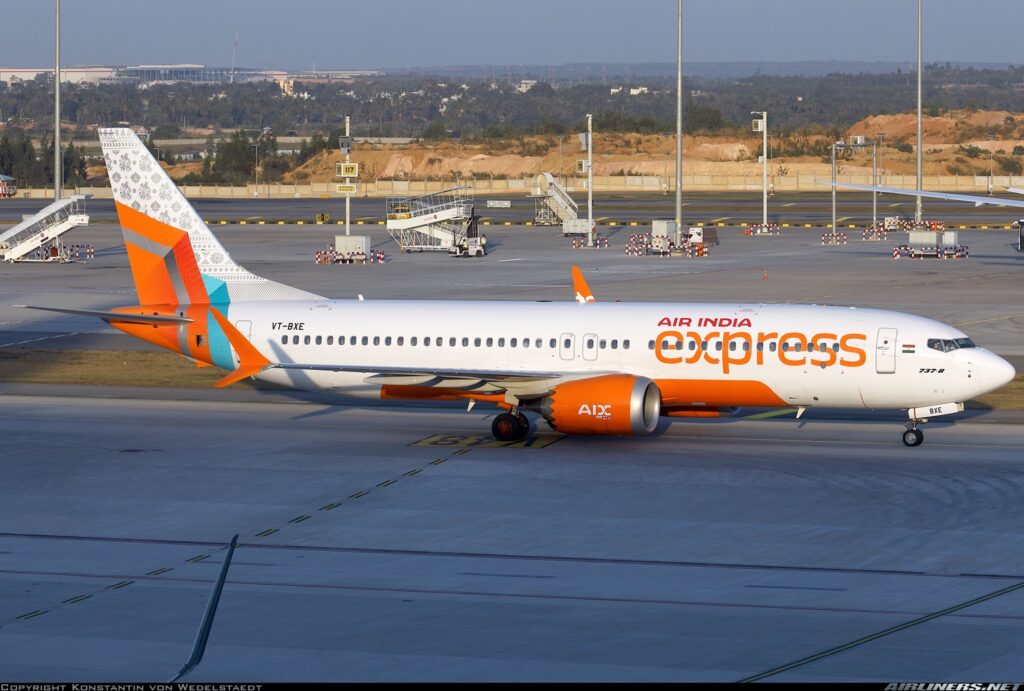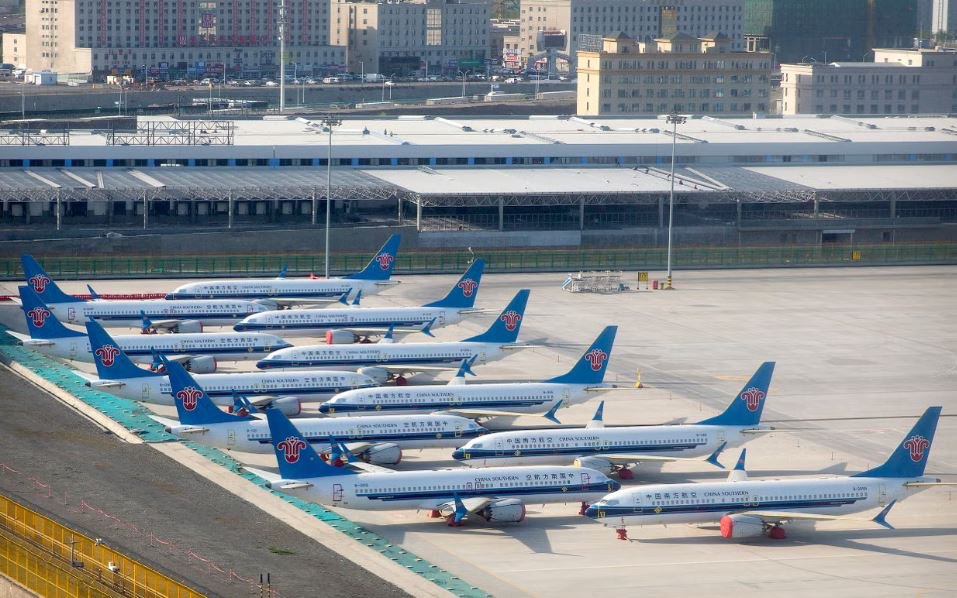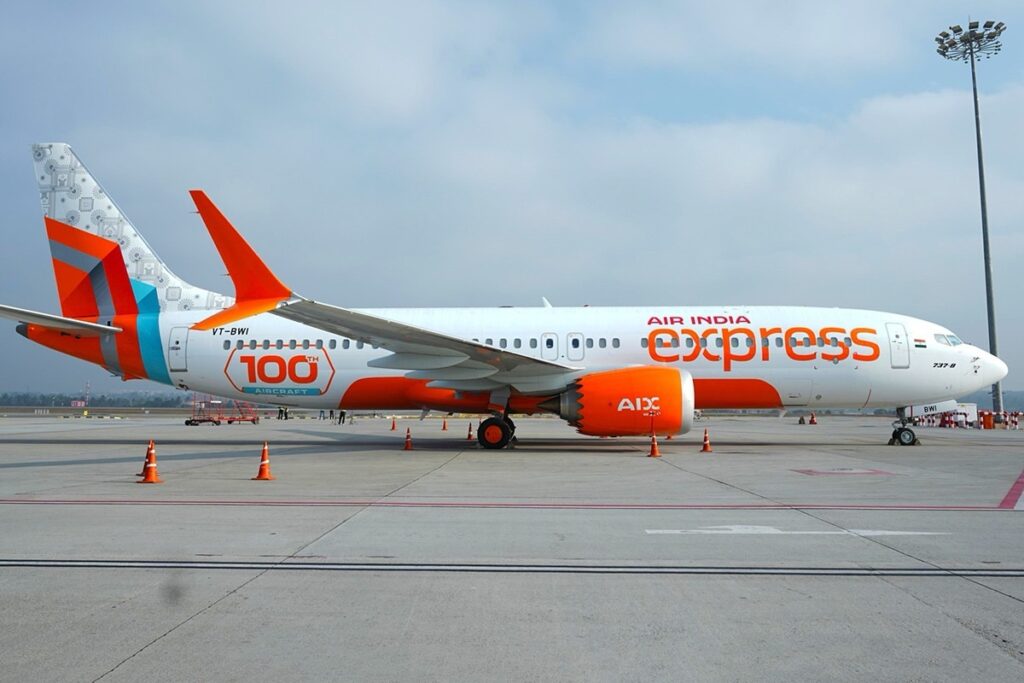As the trade conflict between the U.S. and China escalates, a report by Bloomberg reveals that the Chinese government has instructed its airlines to refrain from accepting new deliveries from Boeing. This decision may negatively impact the American aerospace manufacturer, which has been grappling with a series of crises. As soon as this news emerged, discussions began regarding who stands to gain from this situation if it persists.
India is undoubtedly in the spotlight, as its carriers are eager to expand their capacity in an environment that has long been hampered by supply chain constraints. Air India Express, SpiceJet, and Akasa Air have existing orders with Boeing. While Air India Express and Akasa Air are in the process of receiving new aircraft, SpiceJet is left waiting to learn the fate of its order.

Both Akasa Air and Air India Express have benefited from acquiring white-tail aircraft, a term used in the industry for planes that were manufactured but not accepted by the airlines that originally ordered them. The majority of Akasa Air’s fleet consists of white-tail aircraft, whereas all of Air India Express’s MAX deliveries are planes intended for other airlines, primarily Chinese ones. Passengers may notice a variety of seat types and coverings, as well as a dual-class configuration on these planes.
According to data from Boeing, Chinese airlines placed orders for 253 MAX aircraft between 2013 and 2017, with no new orders made since. Additionally, these airlines ordered 82 Dreamliners since 2013. China has received 155 MAX aircraft and 105 Dreamliners to date. Some of these aircraft were sourced from leasing companies or subsequently leased to other airlines by Chinese lessors. Currently, there are 96 unfulfilled orders for the MAX aircraft and 11 for the Dreamliners in China. Both types are highly sought after in India.
What implications does this hold for Boeing?
Boeing has faced a series of challenges, beginning with the tragic crashes of the MAX aircraft that resulted in a global grounding of the fleet. This was soon followed by the pandemic, during which the Boeing team consistently set deadlines for the MAX’s return to service. After management changes and increased scrutiny from the FAA, the company encountered a strike from machinists that delayed both production and deliveries. Just as it seemed that matters were improving, the trade war has presented yet another obstacle for the company, and actions taken by one nation could set a precedent for imposing tariffs or affecting deliveries. Few countries are in a position to postpone deliveries, as airlines worldwide have been racing to increase capacity, and most nations allow their airlines to negotiate and place orders independently, unlike China, where the government plays a significant role in aircraft procurement.

What implications does this hold for Indian carriers?
It’s still premature to determine whether the Chinese announcement will translate into tangible actions or merely serve as a tactic for renegotiating tariffs. Nonetheless, the prospect of additional aircraft availability would be favorable for Indian carriers, particularly for Akasa Air and Air India Express, which possess the financial resources to acquire more planes and expand in a market that has been eager for increased capacity.
However, this does imply that white-tail aircraft will arrive with a seating configuration that may not align with the airlines’ preferences, along with the livery. Akasa Air received its deliveries after modifying the livery at Boeing Field, whereas Air India Express has witnessed livery changes occurring in India while taking delivery of planes in the original colors of Chinese carriers.

The US-China trade war extends to the skies
The global aerospace sector is being drawn into a trade war spearheaded by the U.S., prompting planemakers, airlines, and suppliers to reassess contracts worth billions, following a provocation from U.S. supplier Howmet Aerospace regarding who should absorb the tariff costs.
Uncertainty surrounding fluctuating tariffs could place aircraft deliveries in a state of uncertainty, with some airline CEOs indicating a willingness to postpone plane deliveries rather than incur additional duties.
China’s three leading airlines – Air China, China Eastern Airlines, and China Southern Airlines – had intended to take delivery of 45, 53, and 81 Boeing aircraft respectively from 2025 to 2027.

Furthermore, Beijing has requested that Chinese carriers cease purchasing aircraft-related equipment and components from U.S. firms, as reported by Bloomberg.
Two sources within the aerospace industry informed Reuters that they had not received independent confirmation of a comprehensive ban by China on U.S. aircraft components.
Analysts suggested that a temporary cessation of deliveries to China would not significantly affect Boeing, as the manufacturer could redirect those jets to other airlines, especially since Airbus lacks the capacity to solely supply the country.

Tail Note
There exists a distinction between the initial batch of white-tail aircraft that Akasa Air procured or Air India Express ordered and the current situation. While Akasa Air opted to place an order for planes and chose to accept white-tails amid the pandemic when demand was low, Air India Express decided to take the white-tails when inventory levels were elevated. Presently, we are neither in the midst of a pandemic nor is there a substantial inventory, meaning airlines will have to compete to secure the planes that may unexpectedly become available. What once favored airlines has shifted, as Boeing now holds a dominant position, allowing it to command higher profits on planes that could be available with a shorter lead time or immediately.
For all aviation-related guidance (DGCA ground classes, pilot training, cabin crew training)
Contact us https://contrail.in/
phone numbers +91 78457 69399


